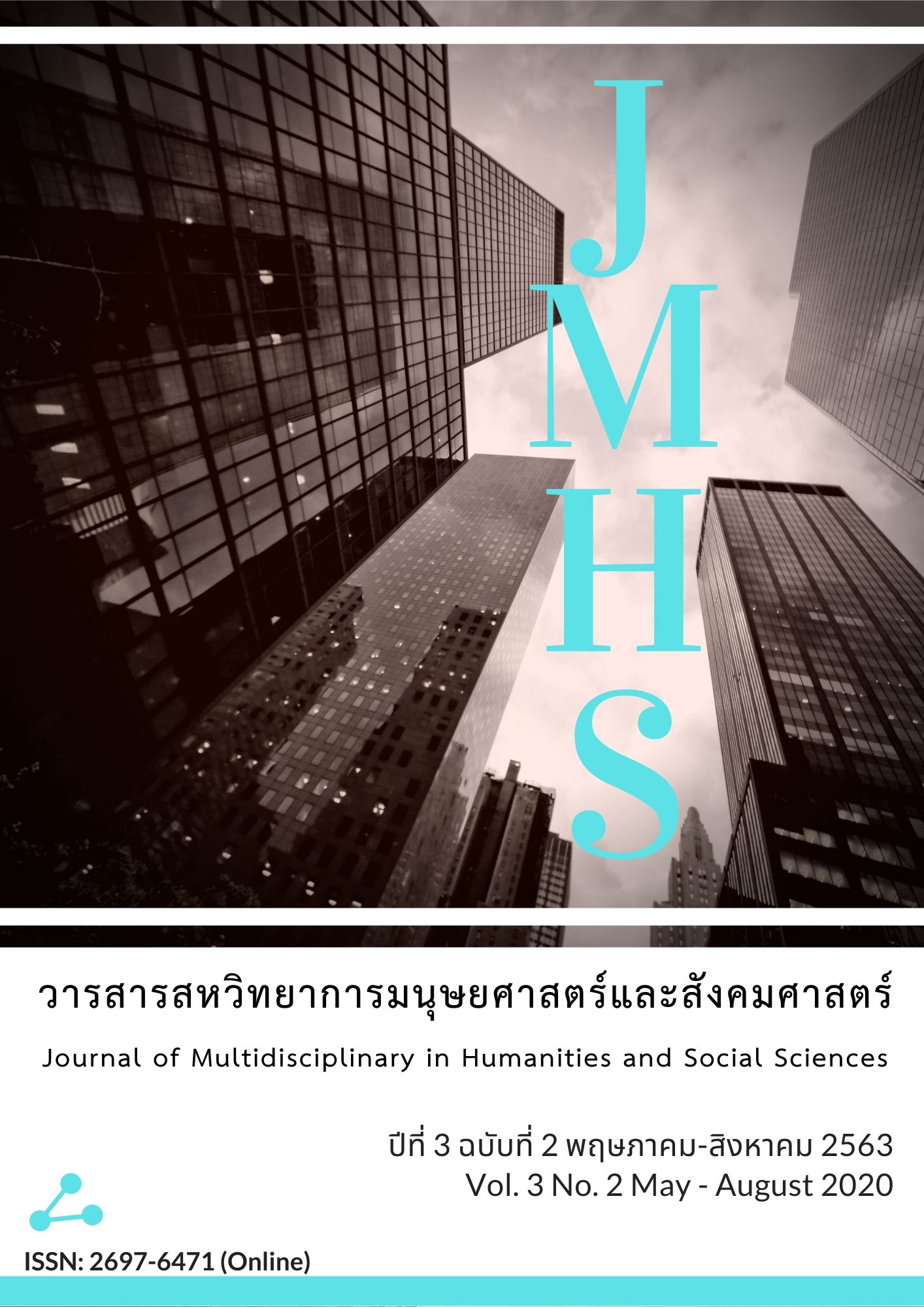The Role of Monks in Educational Management Accordance with The Neo-Humanism Philosophy: A Case Study of Wat Samrong School Nakhon Chai Si District Nakhon Pathom Province
Main Article Content
Abstract
This article has 1 objectives: to study the roles of monks Concepts and methods of education according to the new humanistic philosophy, 2) to study the problems and obstacles in the management of education according to the new humanistic philosophy, and 3) to propose methods of education according to the new humanistic philosophy The research model was a qualitative research by using interviews to collect data consisting of 1) 5 moral teaching teachers, 2) 1 school administrator and 3) 5 teachers in the school. Is Semi-structural interview form Qualitative data analysis from interviews Using content analysis, the research found that The role of monks Helps in human and social development. Allowing humans to develop themselves both physically and mentally. As well as to convey good feelings Full of great compassion Emphasizing the organization of Buddhist activities such as meditation, observance of Buddhist doctrine Can be used in the development of humans to be Can grow both physically, socially, mentally and intellectually.
Knowledge/ Findings from this research Is the provision of education according to the new humanistic philosophy in accordance with the aims for children and youth to develop into perfect humans.
Article Details
Views and opinions appearing in the Journal it is the responsibility of the author of the article, and does not constitute the view and responsibility of the editorial team.
References
เกียรติวรรณ อมาตยกุลและคณะ. (2557). การศึกษาและการเรียนรู้ตลอดชีวิต. กรุงเทพฯ: จุฬาลงกรณ์มหาวิทยาลัย.
คมกฤษดา ชัยมงคล. (2559). ผลการจัดการเรียนรู้เซปักตะกร้อตามแนวคิดนีโอฮิวแมนนิสที่มีต่อทักษะการเล่นลูกด้วยข้างเท้าด้านใน (วิทยานิพนธ์ครุศาสตรมหาบัณฑิต). ภาควิชาหลักสูตรและการสอน คณะครุศาสตร์ จุฬาลงกรณ์มหาวิทยาลัย.
บุญเลื่อน แสงอรุณ. (2558). สภาพปัญหาและแนวทางการบริหารจัดการสถานศึกษาขั้นพื้นฐานในสังคมพหุวัฒนธรรมตามแนวตะเข็บชายแดนภาคเหนือตอนบน. วารสารศึกษาศาสตร์ มหาวิทยาลัยมหาสารคาม, 9(3), 66-77.
พรชัย พันธุ์ธาดาพร. (2559). บทบาทพระสงฆ์ต่อการพัฒนาชุมชน ในจังหวัดพระนครศรีอยุธยา. การประชุมวิชาการและเสนอผลงานวิจัยระดับชาติ ครั้งที่ 3 ก้าวสู่ทศวรรษที่ 2: บูรณาการงานวิจัย ใช้องค์ความรู้ สู่ความยั่งยืน. 17 มิถุนายน 2559 ณ วิทยาลัยนครราชสมีา อำเภอเมือง จังหวัดนครราชสีมา.
พระครูอุทัยพัฒนโกศล (ฉลอง กุสโล). (2559). บทบาทคณะสงฆ์กับการศึกษา. วารสารครุศาสตร์ปริทรรศน์ คณะครุศาสตร์ มหาวิทยาลัยมหาจุฬาลงกรณราชวิทยาลัย, 3(3), 120-135.
ภรณี ศิริวิศาลสุวรรณ. (2555). ผลของการจัดการเรียนรู้พลศึกษาตามแนวคิดนีโอฮิวแมนนิสที่มีต่อ ความฉลาดทางอารมณ์ของนักเรียนชั้นมัธยมศึกษาตอนต้น. วารสารอิเล็กทรอนิกส์ทาง การศึกษา,7(1), 1473-1487.
รัชนี อมาตยกุล. (2552). การประยุกต์ใช้แนวคิดนีโอฮิวแมนนิสในการบริหารโรงเรียน : กรณีศึกษา โรงเรียนอมาตยกุล (วิทยานิพนธ์ศึกษาศาสตรมหาบัณฑิต). สาขาวิชาศึกษาศาสตร์มหาวิทยาลัยสุโขทัยธรรมาธิราช.
สำนักงานเขตพื้นที่การศึกษาประถมศึกษานครปฐม เขต 2. สืบค้นข้อมูล https://data.bopp-obec.info/web /index_view_history.php?School_ID=1073180135&page=history.
Bryce, et al. (2000). The Era of Lifelong Learning: Implications for Secondary School. Melbourne: Australian council for educational research.


